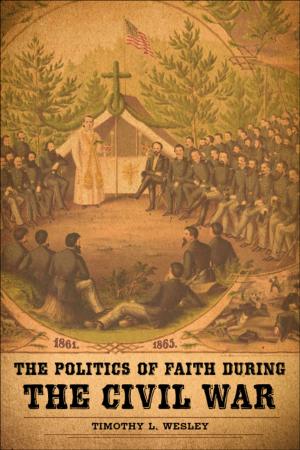Brown v. Board and the Transformation of American Culture
Education and the South in the Age of Desegregation
Nonfiction, Social & Cultural Studies, Political Science, Politics, Civil Rights| Author: | Ben Keppel | ISBN: | 9780807161340 |
| Publisher: | LSU Press | Publication: | January 11, 2016 |
| Imprint: | LSU Press | Language: | English |
| Author: | Ben Keppel |
| ISBN: | 9780807161340 |
| Publisher: | LSU Press |
| Publication: | January 11, 2016 |
| Imprint: | LSU Press |
| Language: | English |
Brown v. Board of Education, which ended legally sanctioned segregation in American public schools, brought issues of racial equality to the forefront of the nation’s attention. Beyond its repercussions for the educational system, the decision also heralded broad changes to concepts of justice and national identity. “Brown v. Board” and the Transformation of American Culture examines the prominent cultural figures who taught the country how to embrace new values and ideas of citizenship in the aftermath of this groundbreaking decision.
Through the lens of three cultural “first responders,” Ben Keppel tracks the creation of an American culture in which race, class, and ethnicity could cease to imply an inferior form of citizenship. Psychiatrist and social critic Robert Coles, in his Pulitzer Prize–winning studies of children and schools in desegregating regions of the country, helped citizens understand the value of the project of racial equality in the lives of regular families, both white and black. Comedian Bill Cosby leveraged his success with gentle, family-centric humor to create televised spaces that challenged the idea of whiteness as the cultural default. Public television producer Joan Ganz Cooney designed programs like Sesame Street that extended educational opportunities to impoverished children, while offering a new vision of urban life in which diverse populations coexisted in an atmosphere of harmony and mutual support.
Together, the work of these pioneering figures provided new codes of conduct and guided America through the growing pains of becoming a truly pluralistic nation. In this cultural history of the impact of Brown v. Board, Keppel paints a vivid picture of a society at once eager for and resistant to the changes ushered in by this pivotal decision.
Brown v. Board of Education, which ended legally sanctioned segregation in American public schools, brought issues of racial equality to the forefront of the nation’s attention. Beyond its repercussions for the educational system, the decision also heralded broad changes to concepts of justice and national identity. “Brown v. Board” and the Transformation of American Culture examines the prominent cultural figures who taught the country how to embrace new values and ideas of citizenship in the aftermath of this groundbreaking decision.
Through the lens of three cultural “first responders,” Ben Keppel tracks the creation of an American culture in which race, class, and ethnicity could cease to imply an inferior form of citizenship. Psychiatrist and social critic Robert Coles, in his Pulitzer Prize–winning studies of children and schools in desegregating regions of the country, helped citizens understand the value of the project of racial equality in the lives of regular families, both white and black. Comedian Bill Cosby leveraged his success with gentle, family-centric humor to create televised spaces that challenged the idea of whiteness as the cultural default. Public television producer Joan Ganz Cooney designed programs like Sesame Street that extended educational opportunities to impoverished children, while offering a new vision of urban life in which diverse populations coexisted in an atmosphere of harmony and mutual support.
Together, the work of these pioneering figures provided new codes of conduct and guided America through the growing pains of becoming a truly pluralistic nation. In this cultural history of the impact of Brown v. Board, Keppel paints a vivid picture of a society at once eager for and resistant to the changes ushered in by this pivotal decision.















